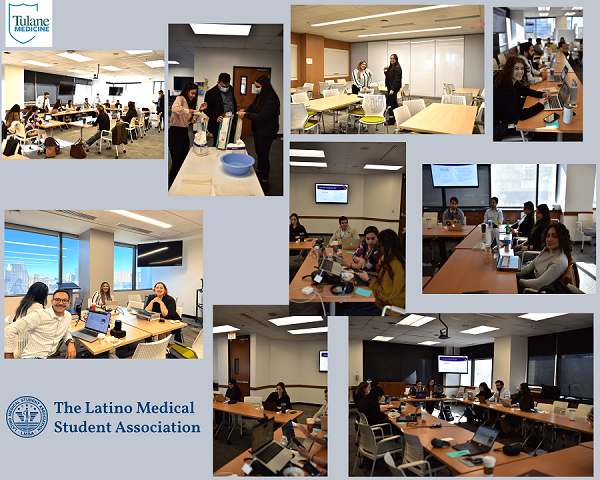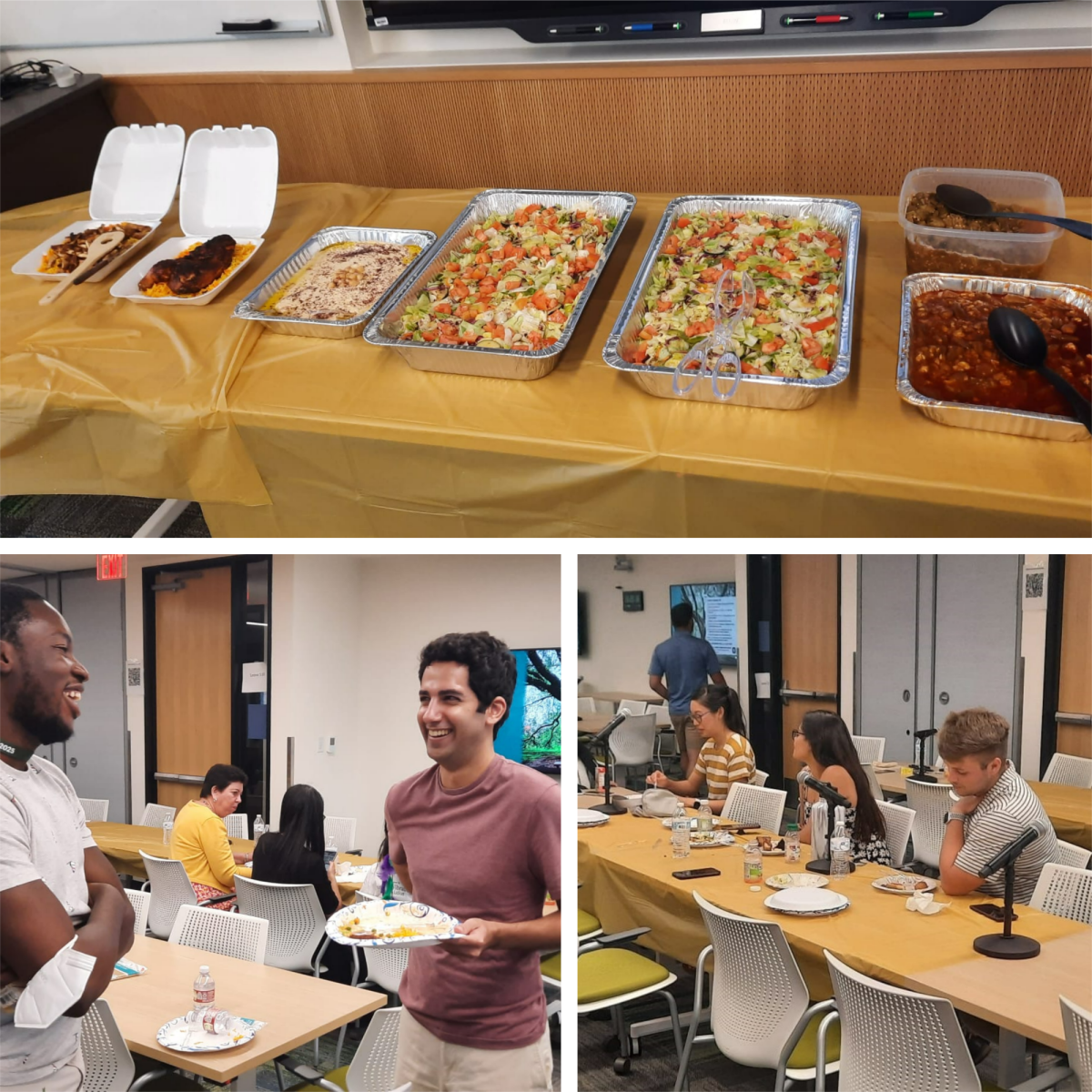From Bench to Bedside
Interdisciplinary approach prepares students in Tulane University School of Medicine’s Biomedical Science Graduate Program
BY MICHELLE LEMIEUX This article appeared in the November/December 2021 issue of Diversity in Action.
JUST TWO MONTHS AGO, NEW ORLEANS WAS breaking through from Hurricane Ida. Dealing with massive power outages, Tulane University School of Medicine was back on its feet within a couple of weeks, and the rest of the city soon followed.
Described as “small but mighty” by Dr. Diane Blake, co-director of the Biomedical Science Graduate Program and professor of biochemistry and molecular biology at the university, rising to the occasion is a symbol of the commitment, dedication and resilience Tulane brings to its students.
The Biomedical Science Graduate Program (BMS), which Blake has run for the last six years, takes an interdisciplinary approach to graduate education and research, allowing students to customize their experiences as they move forward in their careers. Offering 18 different master’s degrees and a Ph.D. in biomedical sciences, the program offers candidates the ability to not just be collaborative and innovative, but creative. Click to read the entire "From Bench to Bedside" article as a PDF.
10th Annual LMSA Conference Hosted by Tulane University
BY ANDY RIVERA

This year, we held the 10th annual Latino Medical Student Association Conference, hosted at Tulane School of Medicine. Each year, we decide on a theme for the conference and this year’s theme was: “Es Tiempo de Cambiar: The importance of Diversity in Medicine”. Our conference is a 3 day conference, beginning with high school days, focused on introducing the field of medicine to high school students, through workshops, physician panels and interactive lectures. The second day was geared towards medical students, with special events that included discussions over current issues in medicine, SIM center sessions, resident/attending panels of various specialties and more. The final day is where we elect new regional board members, through the participation of regional chapter members from the southwest region.
Every aspect of the conference went smoothly, and really could not have asked for a better turnout. There were many hands on deck from our local regional chapter members (Tulane and LSU), in addition to those who were able to make it, which included our regional board members and other regional chapter members. We were fortunate to have the support of so many residents and faculty members throughout the day, all of which helped to make the conference the success that it was. In all, we hope this conference helped to inspire high school students to pursue a career in medicine, and our pre-med and medical students in a way that will benefit their future. We also thank our residents and faculty members for their time throughout the day, and we hope that this experience will encourage them to continue on the path of mentorship.
Eid Dinner Hosted by Office of Multicultural Affairs
BY YONIS HAKIM & YOUSEF HAKIM

Students (T1s, T2s, and T3s), professors, attendings, fellows, and researchers attended the Dinner Party on Saturday, the 17th, in Murphy’s Leone Center for Eid. This was one of the first Eid dinners to be approved by TUSOM. Eid is the time after the month of Ramadan, during which Muslims celebrate the completion of fasting Ramadan. They enjoy visiting family, friends, and members of the community and share delicious meals and gifts to spread happiness and foster a close-knit community, whose goodness spreads far. They also start this lovely occasion by giving charity to the poor.
This dinner was graciously approved by Ms. Bennetta Horne, the Director of TUSOM’s Office of Multicultural Affairs, upon receiving the suggestion of a T1 student, Yonis Hakim. Mr. Jordan Bradford, the Executive Administrative Assistant to the Dean's Office, courteously helped the T1 student in arranging the authentic food for the event and coordinating the event to be a smooth and lovely one.
During the dinner, students and faculty of different ways of life and stages in their career development came together to build bridges and learn more about their fellow colleagues’ way of life. They also shared their colleague’s joys and meaningful moments in a celebration of inclusion and understanding. The dinner exemplified the kind sentiment of Eid of sharing blessings of delicious food with family, friends, and the community. Indeed, not only students and faculty enjoyed the authentic delicacies of this grand dinner, but also much-appreciated staff of the TUSOM community, such as the custodial services staff and the security, whose significant work is dearly valued and respected. Gratitude is a part of Ramadan and Eid, and we hope that gratitude that is due to TUSOM at large has been shown, and we are thankful for the Office of Multicultural Affairs for making this dinner possible. Eid Mubarak!
Driving diversity and inclusion: Moving from rhetoric to reality
2021 AUTM meeting coverage
This article appeared in the April 2021 issue of Technology Transfer Tactics.
Click to read the entire Technology Transfer Tactics article
James Zanewicz, TUSOM Chief Business Officer participated in the AUTM 2021 Annual Meeting as a panelist during the Driving diversity and inclusion: Moving from rhetoric to reality session.
Zanewicz noted that TTOs are in an excellent position to better engage underrepresented inventors and students. “The data shows that those are the people less likely to step forward and say, ‘I need help’ or ‘I want to learn more,’” he observed. “By actively reaching out and engaging with those folks, we can do a lot to show people that they are able to be engaged in the activities we are in, whether it is from the scientific side or from people who might become future leaders in our profession.”
He also commented that getting the right mix for true diversity might be tricky. “For diversity of thought, just because you have diversity in the traditional sense and are including different people of color and genders and sexual orientations, it does not necessarily mean you are choosing people who think differently than you do,” he said. “We also need to look at people who have different backgrounds, all those other types [who think] differently than we do, or we wind up in groupthink, and that is just as dangerous and can lead us down a worse path than having [no] diversity.”
